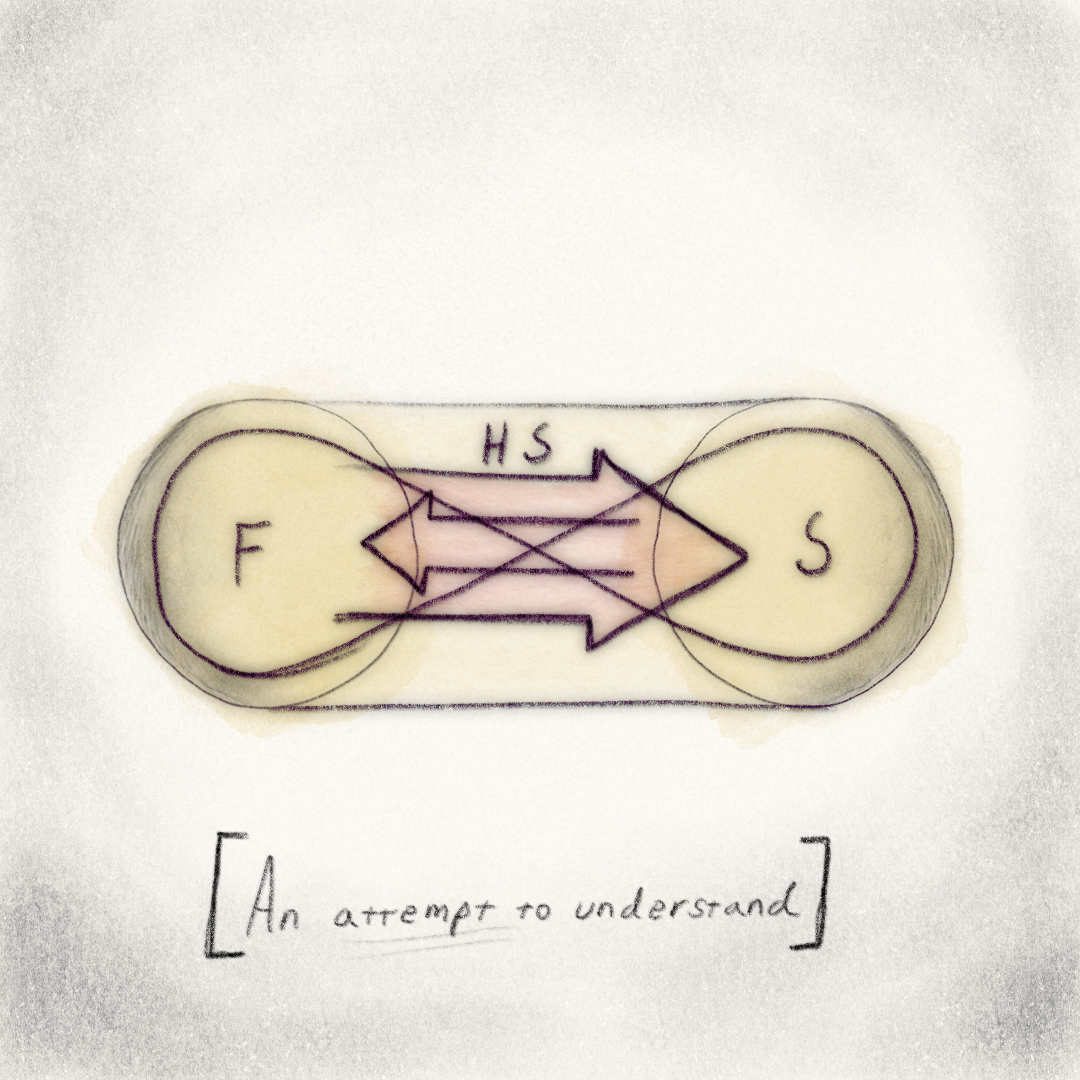
“Beloved, let us love one another, for love is from God, and whoever loves has been born of God and knows God. Anyone who does not love does not know God, because God is love. In this the love of God was made manifest among us, that God sent His only Son into the world so that we might live through Him. In this is love, not that we have loved God but that He loved us and sent His Son to be the propitiation for our sins.”
1 John 4:7-10
Last week we looked at 1 John 4:7 which presents the command to love (as Christ has loved us) and supports that command with two grounds: 1) because love is sourced in God, and 2) because Christ-like love is the definitive mark of someone who has been born of God, in fact, only those born of God can love in this way. Thus far we’ve defined the love in view in this text only as “the love with which Christ has loved us” (that is the “new commandment” that John talks about in 1 John 2:8). This sort of love is commanded of every Christian, comes from God, and is practiced only by believers in Christ. Today I want to move on to the next section, verse 8.
“Anyone who does not love does not know God, because God is love.”
Anyone Who Does Not Love Does Not Know God
Recall that, for John (and thus, for the Holy Spirit) Eternal Life is knowing God in Jesus Christ (John 17:3). So, when John says that anyone who does not love does not know God, He is simply affirming what he has already said in verse 7, namely that regeneration of the heart will produce Christ-like love, and that consistent lack of this love proves a lack of regeneration.
To truly know God–to know Him as He intends to be known in His Son, crucified and risen–is to be made a man or woman marked by the same love through which He was revealed to us. Our salvation, our redemption, our eternal joy consists in gazing into the white hot furnace of God’s intra-trinitarian love–poured out over us at the cross–and seeing in that unalloyed holiness the beauty for whom we were made and in whom we are satisfied. John’s point is that we cannot claim to have had (and to be having) this supernatural sight of God in Christ while at the same time remaining unaffected by it. As theologian Greg Beale has said, “we become what we worship” and “we resemble what we reverence.” God has designed the human creature such that it is conformed to that which it most treasures, and if we say that God in Christ has become our Lord and life and light, then this will be evidenced by our gradual conformity into His image, that is, into love.
Before we move to the next section of this verse, just pause with me to consider the weight of what John has just said to us. Self-giving, God-exalting love is the mark of every true Christ-follower. As Paul says in 1 Corinthians 13, there may be many “evidences” of piety that we can give (philanthropy, biblical knowledge, prophetic power, ascetic self sacrifice, disciplined religious observance, etc.) but all of these are like the discord of a symphony tuning its instruments if they lack the overarching and unifying melody of love. Love is the mark of the Christian.
If anyone does not love–that is to say, if anyone is not marked by a steadily increasing desire to pour themselves out for the good of others to the glory of God–then they do not know God. How can John say this? How can he make such a strong assertion? Because to know God is to be like Him, and God is love.
God is Love
These three well known words are often quoted when someone wants to argue that God would not do something that they believe is unloving; “My God would never _________ because ‘God is Love’.” However, as I asserted in last weeks entry, Love is a definite reality. It is from God and, therefore, defined by God. When John says, “God is love,” he is not saying “God is what you feel love to be,” or “God is what cultural consensus defines as love,” or “God is comfortable and happy feelings.” Rather, he is telling us something fundamental and unchanging about the identity and character of the eternal Triune God.
The very life of God–it would seem–is marked by His own self-giving to Himself in an infinite act of perfect love. Consider the implications: there was never a time when there was not love. In fact, even “before” there was time, there was love. John 4:8 teaches us that it is absolute nonsense to attempt even to conceive of a reality devoid of love….such a reality cannot be since the eternal God–the fountainhead of all that existence–is, in Himself, Love.
Jonathan Edwards explains the idea that “God is love” by arguing that the Father has ever and always known Himself in His Son and this knowledge has ever and always “resulted” in the mutual and reciprocal pouring forth of God Himself in love between Father and Son in the Spirit. Whether or not Edwards is correct in this model of God’s inner life of love, what I believe is abundantly clear from John 4:8 is that God’s identity, His character, His glory, Who He Is, is “Love”.
In John 4:8, John really seems to be teaching us that Love is at the very core of who God is. Love is not merely one of God’s attributes (along with things like “Holiness, Omnipotence, Wrath, etc), rather ALL of God’s attributes are refractions of love. Just like white light refracts into all the colors of the rainbow when it hits a prism, so too Love (as John understands it) refracts into all the attributes of God when it “hits” created reality.
The key is that we need to define and think about love the way John does. For John, “love” is not some transcendental ideal that exists apart from God and to which God conforms. Neither is John’s idea of love like our modern idea, which basically boils down to tolerance and not hurting anyone. Rather, it seems that John’s concept of “love” is really just another way of saying “Who God Is made known.”
It shouldn’t make us uncomfortable that John elevates the concept of love to such a high level, even defining God by it. “Love” is not something that humans made up and projected onto God, instead, the human concept of “love” came from God. The God who is love created our reality,and whenever the heart / character / nature this God has been glimpsed (albeit twisted, tarnished, sin-stained, and fall-marred) within human experience, we have tended to call it “love” (or the corresponding words in various languages). “Love” does not exist on its own, instead I am suggesting that it is just our word for “like God.” So when John says, “God is love,” he is saying something like: “Who God Is is made manifest to us in love–as it is defined for us in Jesus Christ.”
Well, all of this is good to consider, but it’s high time that we have a concrete definition for love with which to work. If “God is love” it sure is important to know what “love” is! We will begin to develop our definition as we look at verse 9 in the coming days. Until then, may we–by grace–see the glory of the God who is love in the face of Jesus Christ and so be conformed into that same image, from one degree of glory to the next.



